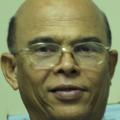According to the UNODC's 25-June-2013 press statement, "There is an alarming new drug problem. Demand has soared for substances not under international control, which are posing significant public health challenges. Therefore, the 2013 UNODC global awareness campaign "Make health your 'new high' in life, not drugs" aims to inform the public, particularly young people, about the harmful effects of new psychoactive substances (NPS). Sold openly, including online, these untested concoctions can be far more dangerous than traditional drugs."
According to the UNODC's 2012 Report, Myanmar (Burma) remains a major source of methamphetamine pills and opiates in Southeast Asia, most of which are manufactured in Shan State in the eastern part of the country. The report also highlights that Myanmar (Burma) becomes one of the key sources of methamphetamine for a number of illicit drug markets in the past decade and a half or so. Most methamphetamine manufacture in Myanmar takes place in the mountainous and remote terrain of eastern Shan State, a region affected by drug trafficking, and political instability for much of the past six decades.
The total opium-poppy cultivation area in Myanmar in 2012 was estimated at 51,000 ha, a 17% increase from the 43,600 ha cultivation area in 2011. In 2012, potential opium production increased by 13% to 690 mt. During the year, an estimated 300,000 households were involved in opium poppy cultivation in Myanmar.
According to the Shan Drug Watch 2012, if political settlement of long-standing ethnic dissatisfaction is not reached, the armed conflict that fuel Burma's drug epidemic will never end. "New Shan Drug Watch report: political solution needed to end drug scourge in Burma" was released on 26 June 2012 International Day Against Drug Abuse and Trafficking.
According to some political analysts, poppy growing and opium production in Shan State have increased over the past two years due to political volatility in Burma and growing economic despondency caused by cronyism, corruption and unprofessional conduct of the government.
Most analysts on drug topic pointed out poverty as a major reason for Shan State's ongoing drug problem. Opium crops only need a short time to grow and promptly generate income for impoverished farmers. To stop growing poppy, an alternative cash crop must be provided.
Khuensai Jaiyen, author of Shan Drug Watch, said Burma-Army controlled "People's Militia Forces' (PMF), set up by the government supporting its operations against rebel forces, have become key players in the drug trade, both heroin and ATS. However, government authorities' involvement in the drug problem is being easily ignored by the international community since it embraces Burma's new Thein Sein government which acts as a reformist.
At least six well-known drug
lords represented the military-backed Union Solidarity and Development Party
(USDP). They are now taking parliament seats along with other members of
parliament since the 7 November 2010 elections, the 2012 Shan Drug Watch report
mentioned.
The Human Rights Foundation of
Monland (HURFOM) released a new report on June 19 spotlighting the trafficking
and use of drugs within the Mon communities as a systemic scheme. There are no
government initiatives prepared to prevent this, HURFOM said.
The 63-page report titled "Bitter Pills: Breaking the Silence
Surrounding Drug Problems in the Mon Community" highlights the widespread
trafficking of drugs and consumption by Mon communities. The report that draws
on the testimonies 140 residents in Mon and Karen states, calls for immediate
action by the government, local authorities, ethnic political parties and civil
society groups.
According to Kachinland News, Kachin people marked the international day against
drug abuse and illicit trafficking ceremony under the banner of UNODC's 2013
global awareness campaign slogan "Make
health your "new high' in life, not
drugs" in Laiza. Salang Kaba Lajawng Hkawng Lum, deputy chief of KIO's drug
eradication committee, said KIO will continue to work for total elimination of
drug across the Kachin region.
He said, "Drugs are being used as
weapons. We can't fight drugs with guns and negotiate on tables, so everyone
has to join to fight against drugs and in eradication efforts."
A two-day workshop on drug
eradication in Kachin land was held at Munglai Hotel in Laiza on June 24 and
June 25. About A six-point resolution for drug eradication across Kachin region
was agreed and issued after the workshop. This is the first-ever joint public
workshop held in KIO-territory on drug eradication and will be conducted
annually, said a KIO officer.
Unless the government's military invasion in ethnic territories are closed down, drugs trade will take place with no end in sight, as if the drug is a kind of weapon for rulers grabbing of the sovereign power. Thus, a negotiated resolution of the root cause of civil war in Burma is immediately needed so as to tackle the drug question which intertwined with the country's long-lasting political conundrum.





